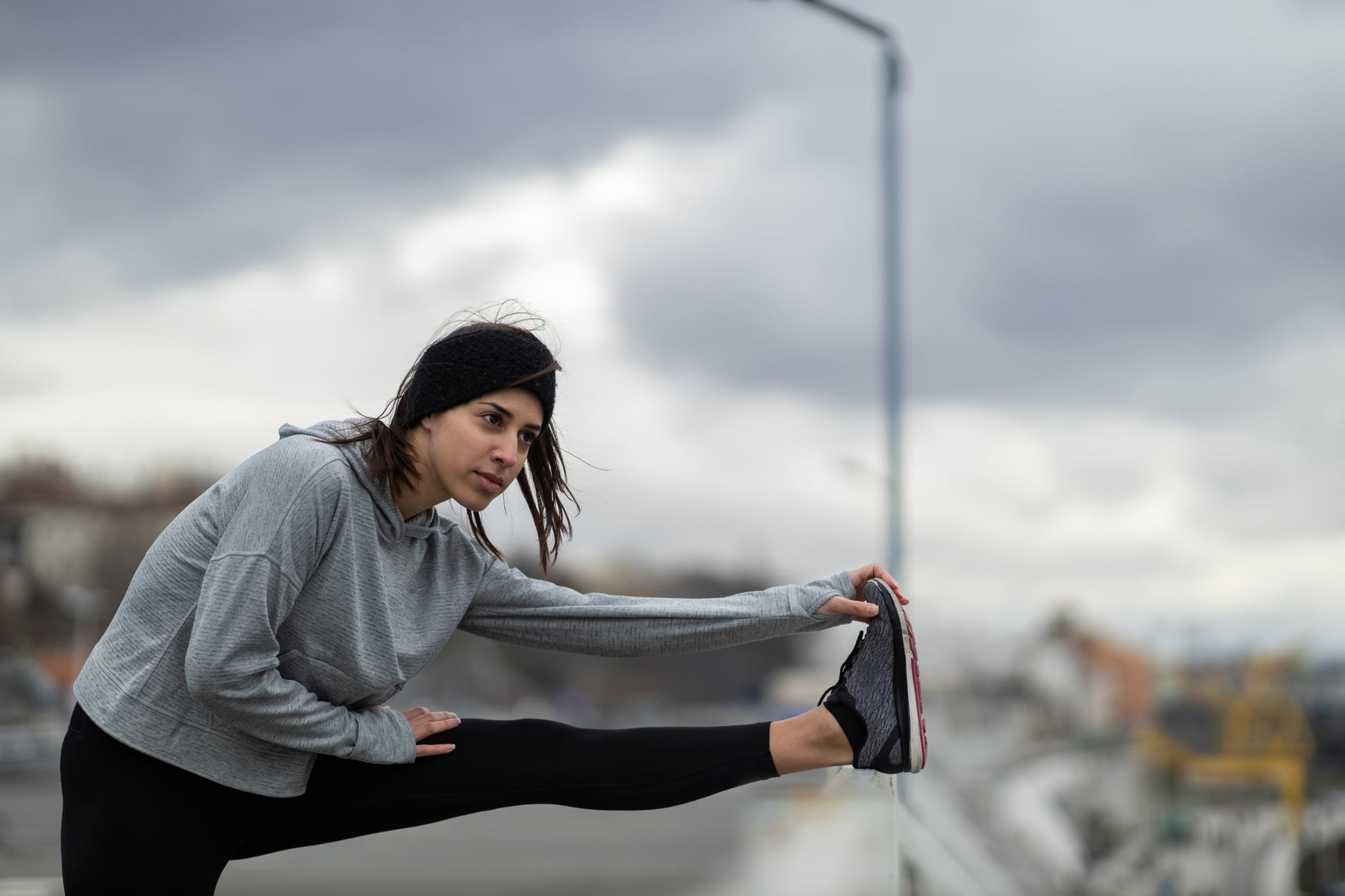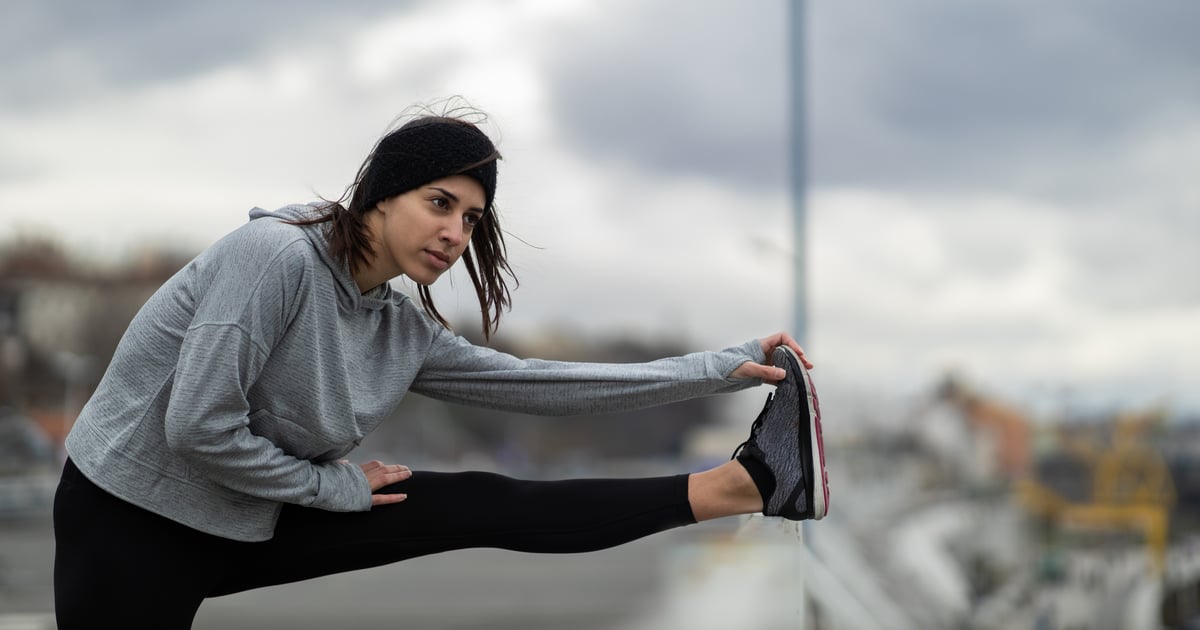
When the scorching temperatures of summer begin to fade, it seems like everyone wants to be outside. Picnics in the park, drinks on the patio, morning jogs — it all feels so nice! But as those early-fall days give way to crisp or even brutally cold temperatures, you might face another barrier to spending time outdoors, especially during your workouts. Those biting winds can be hard on your lungs! In fact, cold air may actually trigger asthma for those who are prone.
Why Does Cold Air Make Asthma Worse?
You would think cooler weather would make breathing easier, and it can sometimes, but it also brings its own challenges. “Cold air can trigger asthma,” Ratika Gupta, MD, a New York-based physician who is board-certified in internal medicine and allergy/immunology, and author of What? I Could be Allergic to That?!, told POPSUGAR.
“The nose and mouth warm the air prior to the air reaching the lungs. In the presence of cold air, it’s harder for the body to warm up the air,” Dr. Gupta explained. “Inhalation of cold air can cause injury to the lining of the airways, which expose nerves. These nerves then cause the airways to be overactive,” which may result in spasms.
Working out in the cold can be especially difficult for those with asthma, because “exposure to cold air can also increase the number of inflammatory cells in the airways,” Dr. Gupta said, causing the airways to become more obstructed. “Also, cold air may decrease the activity of the cilia, which are hair-like structures that help clear pollutants.” Pollutants are never good news for the lungs.
However, it all depends on the person. “For people for whom cold weather can trigger asthma, outdoor activities could be more difficult when it’s cold outside but fine otherwise,” Marc Goldstein, MD, FAAAAI, FACAAI, director of The Asthma Center in Philadelphia and chief medical advisor at Curist, told POPSUGAR. “Similarly for people with pollen allergies, the prevalence of pollen can really impact the person’s ability to be active outside. This can be compounded by the fact exercise in itself can trigger asthma, both outdoors and indoors.” In other words, you need to know your triggers, so you can take steps to exercise safely year-round.
How Can People with Asthma Better Manage Their Symptoms?
You can’t just avoid the outdoors during colder temperatures (no matter how tempting hot tea by the fireplace sounds!), so it’s important to learn how to recognize asthma triggers and manage your symptoms. Dr. Goldstein recommends wearing a scarf over your nose and mouth to reduce the amount of cold air you inhale while you’re outside and working with your doctor to determine a treatment plan that will help control your symptoms, including during your workouts.
Dr. Gupta also suggests checking in with your allergist, who may recommend, among other measures, using an inhaler, “which helps decrease the spasms of the bronchials.” She added that air conditioning can take a similar toll on your lungs, and cold air with pollution can increase respiratory symptoms, so it’s important to always be prepared. Stay proactive by carrying your inhaler, limiting exercise in cooler temperatures if it seems to affect your lungs, and talking to your doctor about your specific concerns. With a few precautions, you’ll be able to navigate whatever the forecast brings.
